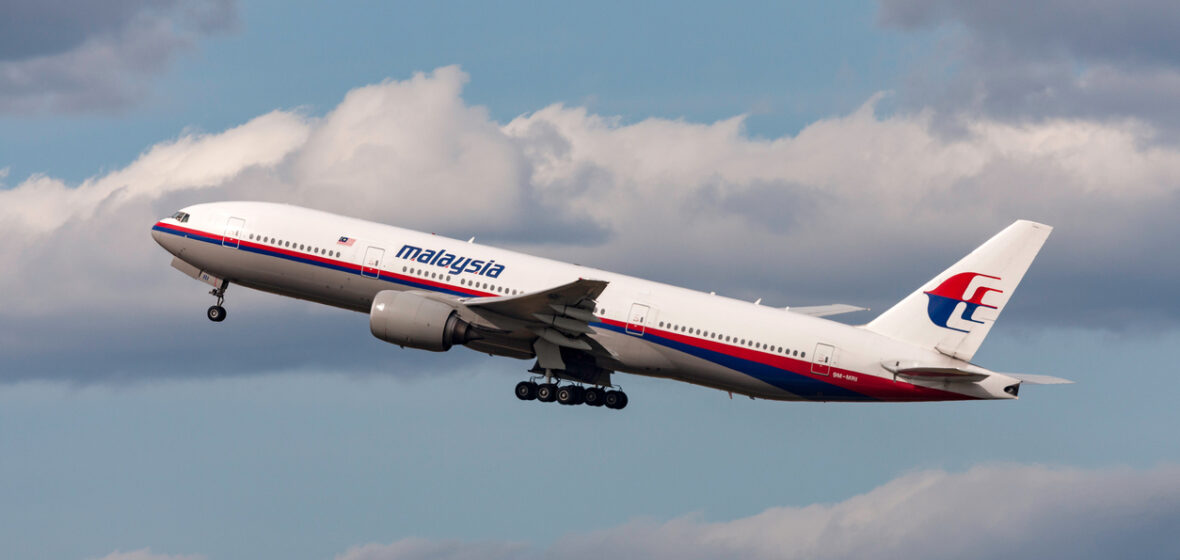Malaysia has requested assistance from Interpol to track down a comedian based in New York who made a joke about the missing Malaysia Airlines flight MH370.
Jocelyn Chia, an American citizen who grew up in Singapore, is currently under investigation by Malaysian authorities for violating laws related to incitement and offensive online content.
The comedian’s joke, which was posted online, resulted in an official protest from the Malaysia Government and an apology from Singapore.
Flight MH370 disappeared in March 2014 after departing from Kuala Lumpur. Despite an extensive four-year search in the Indian Ocean, the main wreckage was never found, and all 239 passengers and crew members are presumed dead.
Chia shared a clip of her stand-up performance at the New York Comedy Cellar on 7 April 2023. During the routine, she made jokes about the historic rivalry that exists between Singapore and Malaysia, two countries that were part previously of the same nation.
Chia joked that while Singapore had advanced to a “first-world country”, Malaysia remained “developing” as Malaysian airplanes “cannot fly”.
Chia added, “Malaysian Airlines going missing not funny huh? Some jokes don’t land”. The video sparked outrage in Malaysia and was subsequently removed from TikTok due to a violation of its hate speech guidelines.
Singapore’s Foreign Minister Vivian Balakrishnan said that he was “appalled by her horrendous statements” and that they did not represent the views of Singaporeans.
“We treasure our ties with family and friends in Malaysia and are sorry for the offence and hurt caused to all Malaysians,” said Balakrishnan.
Malaysian national police chief Acryl Sani Abdullah Sani announced that an application would be submitted to Interpol to obtain Chia’s complete identity and current location. It is unclear whether Interpol will respond to the Malaysian police’s request for assistance.
Interpol has the authority to issue a “Red Notice”, which calls upon law enforcement agencies in member countries to locate and temporarily arrest individuals who are either facing criminal charges or awaiting extradition.
Although Malaysia and the US have an extradition treaty, Malaysian authorities have not indicated whether they intend to prosecute or charge the comedian.
In an interview with CNN, Chia defended her routine, stating she had performed it
“more than 100 times” without any issues. She maintained that the joke had been taken out of context.
In an interview with the BBC, Chia said: “I just wish I could have seen the face of the Interpol officer who received this request”.
“Honestly, if Interpol does do something about this request and things escalate, can you imagine how famous it is going to make me,” she said.
Honestly, if Interpol does do something about this request and things escalate, can you imagine how famous it is going to make me.
Jocelyn Chia, Comedian
Human rights organisations have levelled allegations against Malaysian authorities, claiming that they employ oppressive legislation to stifle freedom of expression and dissenting opinions.
According to Amnesty International’s findings, from January 2020 to June 2022, a total of 87 individuals, including artists, performers, and political activists, faced prosecution.
In May 2023, Chinese stand-up comedian Li Haoshi was detained for a joke that was perceived as a “serious insult to the people’s army”. Li was subsequently detained, and his comedy group has been fined $2.1 million.
What would happen in Australia?
Australia and Malaysia have a Mutual Assistance Treaty to help and cooperate in criminal matters.
However mutual assistance will not be granted unless the Requested Country makes reasonable inquiries to ensure there is no real risk that providing assistance will result in a breach of a person’s rights under the International Covenant on Civil and Political Rights, the Convention against Torture and other Cruel, Inhuman or Degrading Treatment or Punishment or the Convention Relating to the Status of Refugees.
The Extradition Act and the Mutual Assistance Act reflect Australia’s international human rights obligations and include a wide range of safeguards which are applied on a case-by-case basis to determine if extradition or mutual assistance will be granted.




